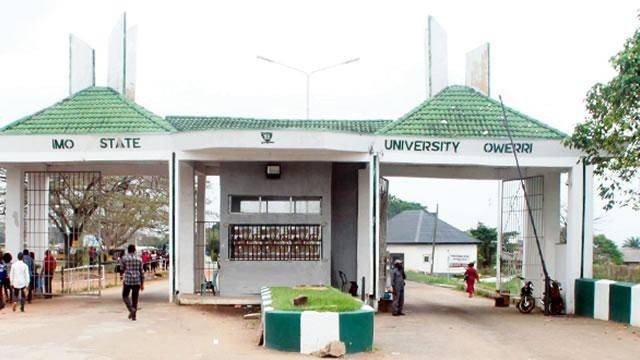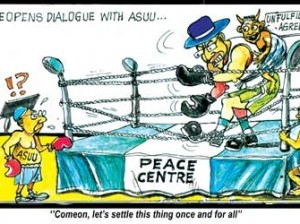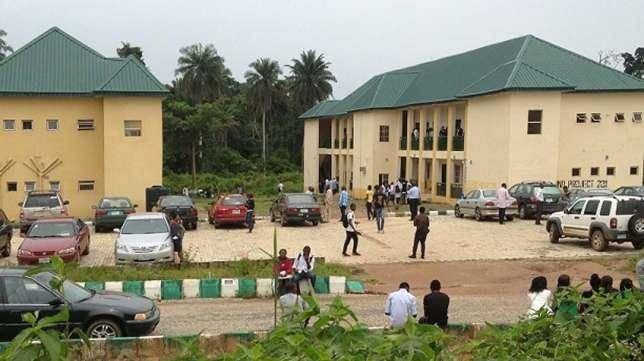
President Goodluck Jonathan on Sunday offered the clearest sign yet that his administration was in no haste to resolve the three- month-old strike by university lecturers, calling their demands “politicized” and urging the lecturers to return to work for the sake of the students.
On his fifth presidential media chat on the Nigerian Television Authority, NTA, the president said the nation’s bitter politics had crept into the strike by the Academic Staff Union of Universities, and was responsible for the refusal of the lecturers to suspend their action despite the government’s effort. “In the past, they did not go this far when strikes were called off; but now politics has gone into everything,” the president said. He did not elaborate when pressed further by a five- member interview panel on his claim about ASUU demands being politicized.
Mr. Jonathan said his administration had made concessions for the strike to be resolved, and has demonstrated remarkable commitment to addressing the massive infrastructure in the universities, one of the key demands ASUU has made. He said the lecturers have refused to accept the government’s explanations that broad range reforms cannot be achieved instantly. “ASUU strike is very very unfortunate,” Mr Jonathan, himself a former lecturer, said. He said crisis in education, in developing countries would always continue.
The president said the biggest indication to his government’s commitment to such reforms was the decision to catalogue the perennial rot afflicting all the universities. “Throughout this time, no government has taken inventory of all the problems in federal and state universities,” the president said. “We said this must change. But it cannot change overnight.
So for ASUU to go on strike over infrastructure, they need to understand that we are serious about intervening starting with N100 billion.” The president’s remarks on the strike was his first since lecturers downed tools in June, asking for improved pay and better funding for universities. They vowed not to resume until the government fully implements the last agreement both sides reached in 2009.
The lecturers have vowed not to accept partial implementation of the agreement, with multiple intervention by the Senate and the House of Representatives stalemated. The government said the challenges of improved funding requires
more time, and claims it has made concessions by providing initial funding.
As the negotiations deadlock, millions of students have remained stranded at home with each claim of quick resolution to the crisis turning out unrealistic. Mr Jonathan’s comments on Sunday provided the strongest indication yet, that, save a change in decision, students will remain at home longer as the crisis stretches without a resolution.
Asked specifically what the way forward would be for the strike, the president said he was calling on the lecturers to resume work for the sake of the Nigerian children and to realize that the government was committed to improving education.
He said the 2009 agreement which ASUU has harped upon, was negotiated by officials incapable for such a responsibility as the agreement was “not implementable”. “Even if we have all the money in the world we cannot change things overnight,” he said. “The members of ASUU are our brothers and sisters, they should look at these young people and look at the commitment of government."



